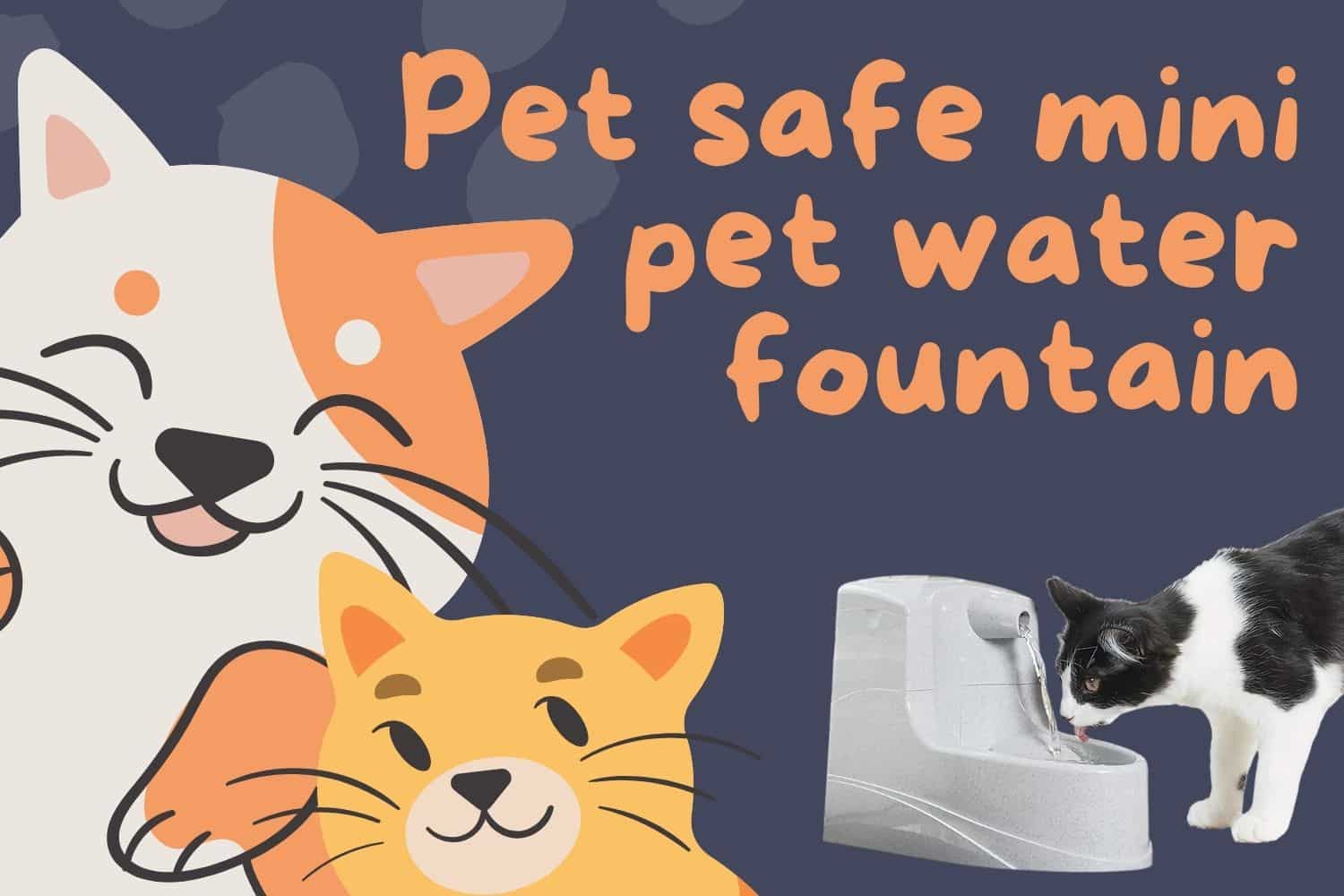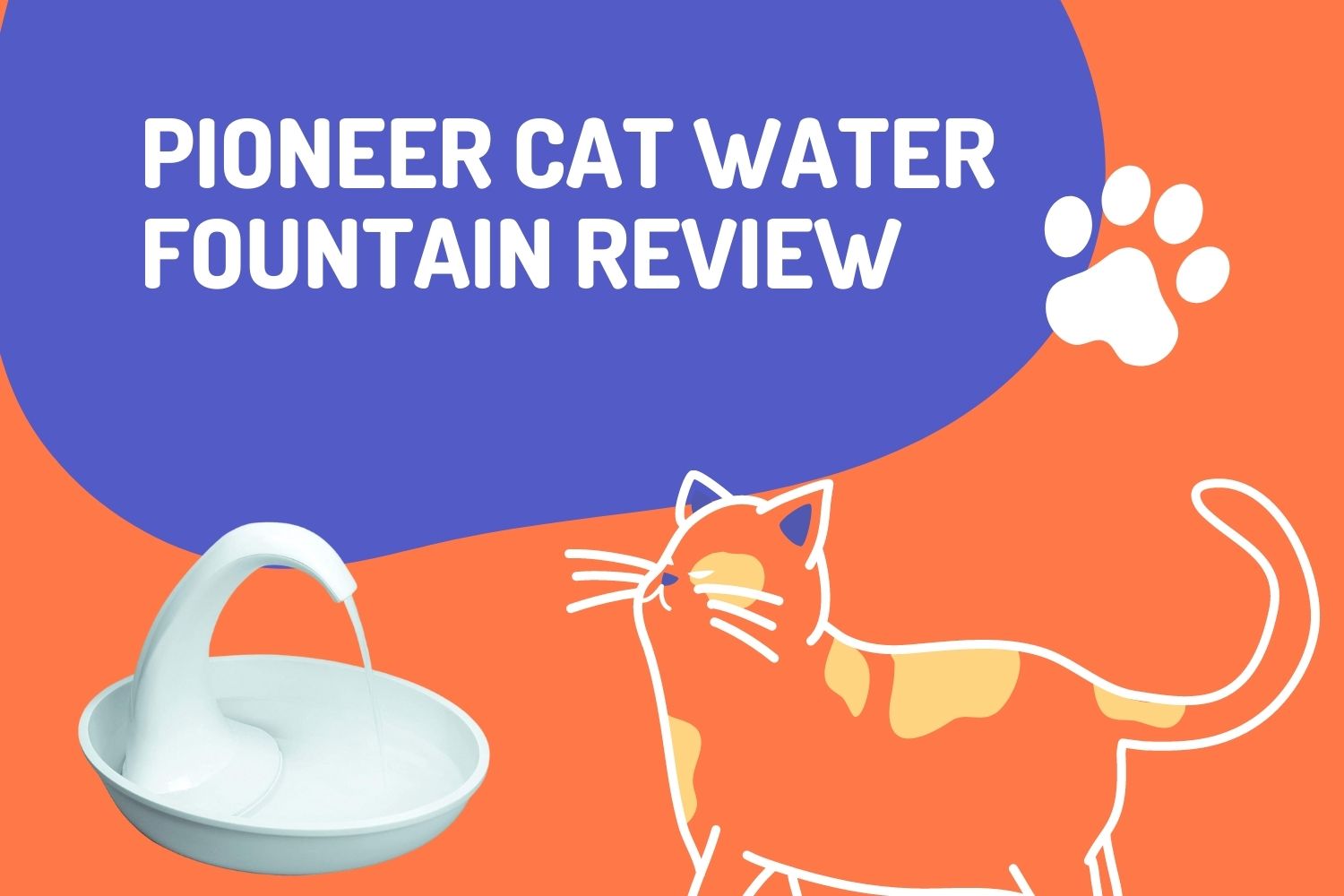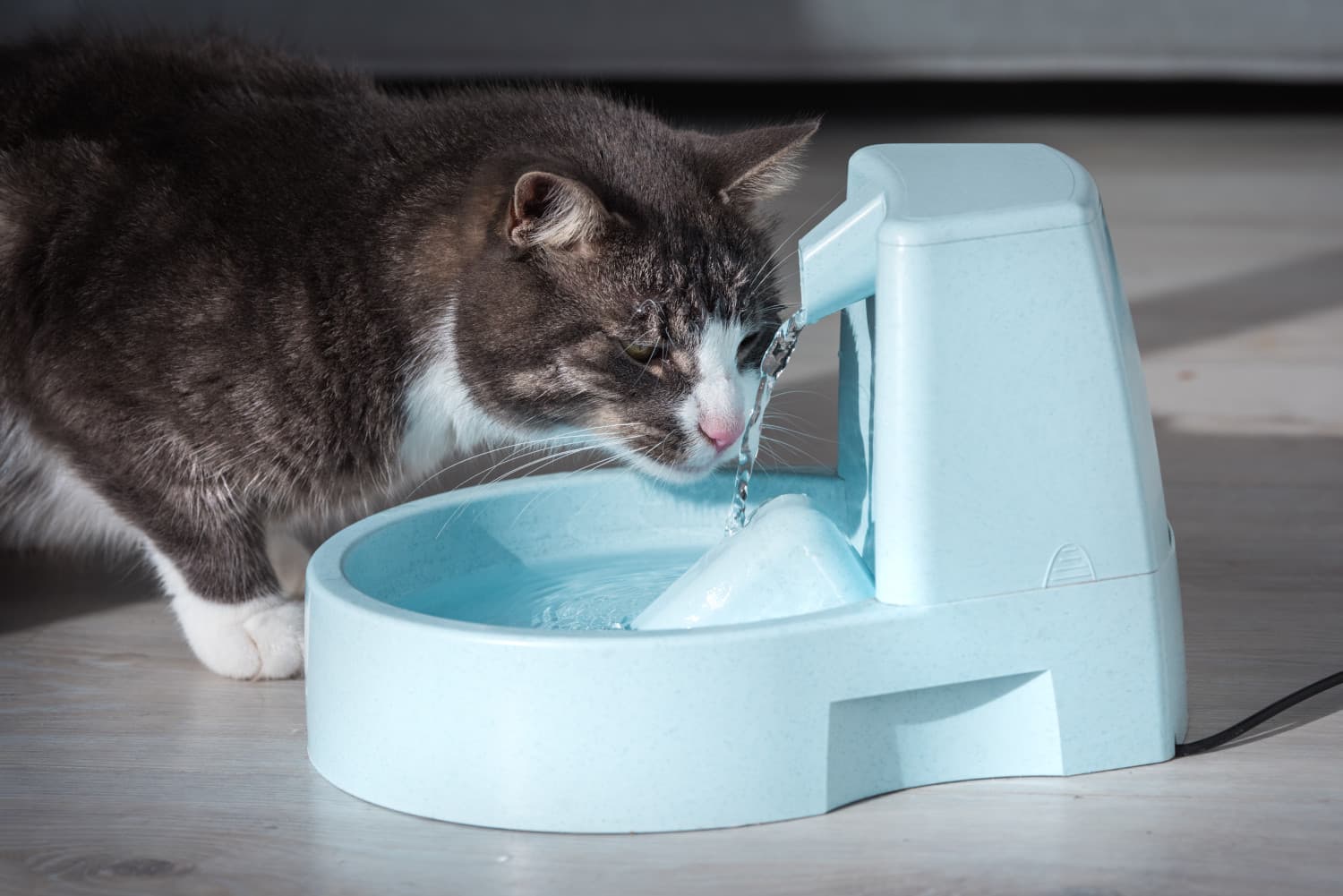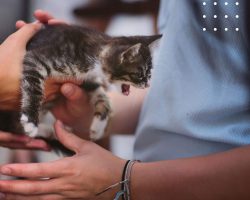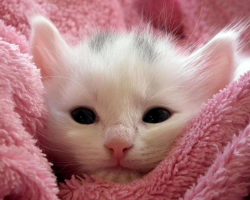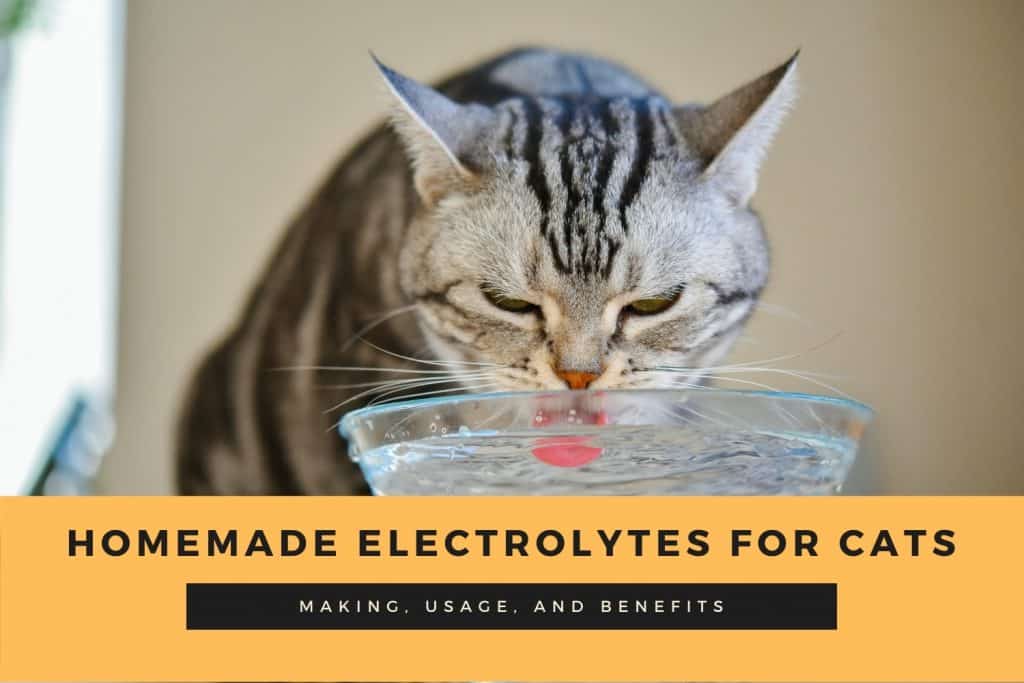
For pet owners with both dogs & cats at home, you would agree that cats are prone to dehydration. It happens especially when they aren’t properly cared for. Cats don’t like drinking water as much as dogs do. So, there is a fair chance that your cat might avoid drinking enough water for days and get dehydrated. Just like humans, the feline body is comprised mostly of water.
So, water is no doubt a vital requirement for cats as well. Lack of appropriate water can lead to improper functioning of the body organs & other crucial body structures. A dehydrated cat can suffer mentally as well as physically.
Even though a veterinary visit is crucial for a dehydrated cat, you must understand that you can try several home remedies to help your pet especially the homemade electrolytes for cats.
But, before we help you understand the process of preparing these homemade electrolytes, you need to understand the right way to detect whether your cat is dehydrated.
Note: A best automatic cat water fountain is a device that provides fresh, moving water for cats. A cat’s instinctual response to a running stream of water is to drink from it, and the sound of flowing water may entice your pet to use the fountain.
How to detect if your cat is suffering from dehydration?
Water is essential for the healthy growth of your cat. If the cat doesn’t ingest enough water, vomits caused by illness, or suffers from extreme heat exposure, it could lead to disastrous consequences. This reduction in water intake causes a serious drop in the animal’s body water levels & electrolyte levels.
Consecutively, the animal’s body will struggle to distribute the nutrients needed for the body tissues properly. It will result in a moisture imbalance for the organism, which will show up as physical signs such as:
- Panting
- Dry gums
- Constant tiredness
- Appetite loss
- Decaying gums
If the dehydration isn’t treated properly and quickly, the cat can suffer from severe kidney damage. In time, the animal’s body immunity shall collapse and cause the demise of the cat.
Your veterinarian would conduct a complete urine and blood analysis to get a medical diagnosis of your dehydrated cat. It will help determine the dehydration severity.
However, as an owner, you should also do your part to check whether the feline is dehydrated. It will help you provide the initial home therapy before a vet visit.
To check whether the cat is dehydrated, you need to pinch the skin of the cat. Now, see if the skin returns immediately to its original state.
If it takes time, it is likely a sign of dehydration. However, this technique isn’t foolproof. In overweight or obese cats, the skin returns easily to normal even when the feline is dealing with dehydration.
Additionally, if you see that the cat’s eyes have sunken & the mouth feels dry, both can point towards dehydration.
Once dehydration is confirmed, you can start using home remedies to help your cat feel better before a veterinarian visit.
Practice Caution When Providing Water to Your Cat
Your dehydrated feline must consume water right away to recover its health. As a pet owner, you must provide water to your cat immediately but gradually. Here, the word gradually is the key. A dehydrated cat would want to drink as much water as possible. However, this is something you must avoid at all costs.
Ingesting bulk of water in one go can result in vomit. In addition, it would cause more fluid loss and irritate the digestive tract.
So, offer water to your cat in small amounts and a slow yet gradual manner.
Ice Chips for Your Dehydrated Cat
As explained earlier, dehydrated cats must consume water but in small amounts. Thus, it will avoid stomach irritation or vomiting. So, an excellent way to help your cat is by providing them some ice chips.
In this way, the cats can consume the required amount of water without being too heavy on the stomach.
Try to scrape the ice into small bits. It will help your cat suck in the water easily. However, giving them complete ice cubes could lead to issues like choking.
Electrolytes: What are they?
Electrolytes are minerals or chemical elements that form the necessary ions in the body fluids. These electrolytes are essential for body cells that need to function normally.
There are several benefits of providing electrolytes to your cats.
Benefits of Electrolytes for Cats
Electrolytes are important for your cats because they help in regulating muscle and nerve functions. It also helps balance the blood acidity & allows the bodily processes to function in a glitch-free manner. When cats receive inadequate water, the body responds by extracting the fluid from the cells.
It leads to electrolytes loss such as calcium, sodium, potassium, and magnesium.
The presence of an appropriate amount of electrolytes helps the body cells function normally. But, on the other hand, the imbalance in bodily functions can affect the organs and other systems.
So, giving your cat the right amount of water and electrolytes is essential or rather crucial.
How do veterinarians diagnose dehydration in cats?
It isn’t wise to self-diagnose your cat, and a veterinary visit is a must. Loss of electrolytes or dehydration could be caused due to various reasons. Your cat might have an undiagnosed condition with electrolyte disturbance as a symptom of the same. A veterinarian can guide you well in terms of the treatment needed.
Your veterinarian will diagnose the dehydration in any of the ways described below:
1-Physical Examination:
The first thing your veterinarian would do is a physical examination of the cat. The doctor will examine the cat’s heart rate, skin, respiratory rate, eyes, hair, and other reflexes to check whether it is an underlying condition or just dehydration.
2-Blood Test:
Your veterinarian might order a CBD or Complete Blood Diagnosis to check out which electrolyte has been off balance due to dehydration. Your veterinarian might also discover similar underlying conditions such as anemia or kidney disease that could contribute to dehydration.
3-Urinalysis:
Your veterinarian might also want to collect some urine samples to analyze the electrolyte composition and determine what’s wrong.
4-Medical Imaging:
If there is no clear indication from urine or blood tests, your veterinarian might conduct a radiograph, ultrasound, or X-ray. It will help determine the underlying conditions that could cause dehydration in cats.
Electrolytes for Cats: A Healthy Homemade Start (MAking)
Apart from consuming clean and fresh water, your cat must get a gradual boost of electrolytes. To help your cat, you can purchase oral serums or fluids from your local veterinary clinic. However, it is not always possible for pet owners to get these clinical serums or electrolytes. So, you can prepare your very own electrolyte for the cat.
Here is a quick recipe for your cat to help them replenish the electrolyte.
- 1-liter mineral water (room temperature)
- 1 teaspoon salt (check with your vet and use potassium salt only if suggested)
- Half teaspoon baking soda
- 3 tablespoon honey
How to make the homemade electrolyte for your cat?
To create this serum, you must start by boiling the water. Next, turn off your heater, and now slowly add other ingredients. Finally, let it stand untouched in the kitchen until it attains room temperature. This concoction is usable for a maximum of 24 hours & must be stored in the refrigerator covered with a re-sealable lid to keep away any contamination.
Make sure you offer this solution to your cat in small amounts. If your cat doesn’t like the taste, try to provide it via the syringe feeding technique. If this doesn’t work for your cat, make sure you immediately contact your veterinarian.
The Pedialyte Home-Made Electrolyte
According to the WHO, the Pedialyte recipe gives your cat the necessary electrolytes and sugar to boost energy. However, as this formula doesn’t have any preservatives, it can only last 2 to 3 days maximum. It should also be refrigerated to keep it fresh for a long time.
Things You Will Need:
- 11/2 Cups of Water
- ¼ Tablespoon of Salt
- 1 Tablespoon of Sugar
- ¼ Tablespoon of Baking Soda
Feeding Your Dehydrated Cat
When talking about feeding a dehydrated cat, one should be cautious. Such cats lose their normal appetite & develop digestive disorders as they lose the water in their body. So, dehydration is closely associated with the onset of malnutrition.
A dehydrated feline must stick to a cautious diet to ensure the condition doesn’t get aggravated. If you have been giving your cat some dry food, it is better to switch to moist options that contain a good amount of water. You can also prepare food for the cat at home, rich in nutrition and water content.
How Can You Avoid feline Dehydration?
Diagnosing the presence of dehydration in your cat can be a complex process, especially if they suffer are overweight or obese. In most cases, the symptoms are only visible when the condition becomes very severe. So, prevention is undoubtedly the best strategy to help keep up the health quotient for your pets.
No home remedy is better than ensuring that your cat drinks fresh and clean water daily. Also, keep in mind to wash the bowl or fountain regularly to keep off any contamination. Finally, it is important for cats that drink less to provide wet food to keep up the water quotient.
Remember that these remedies do not serve as a substitute for veterinarian attention. So, always visit the veterinarian for a quick health check for the cat.
Our 9 ways to encourage your cat to drink more water help your a lot in keeping your cat hydrated while on the other side if you know how to disinfect cat water fountain then you can keep it clean and tidy which naturally cats love.
Conclusion
Electrolytes or water per se is important for a cat to be healthy. In most cases, your cat avoiding a quick sip could just come from the lack of taste in plain water. The key is to make things interesting for the cats. You could either switch those plain, old water bowls with cat water fountains or add flavors that cats love.
Always remember, clean and fresh water is all your cat needs. So, change the water regularly and avoid any algae or slime formation as it could deter your cat from drinking water.

